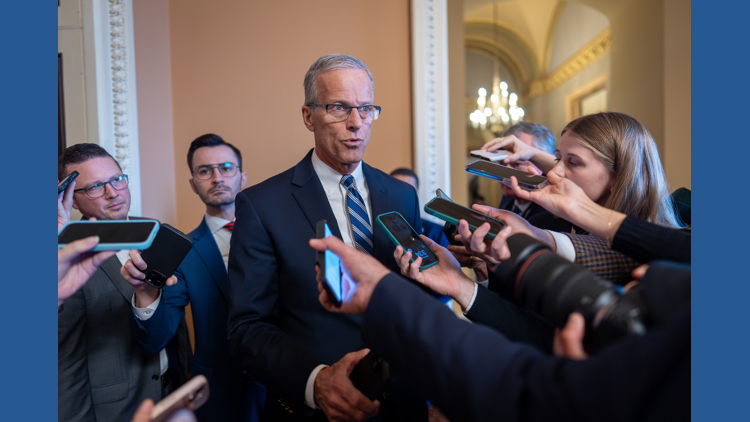Senators are convening for weekend negotiations in Washington D.C. as they strive to resolve the ongoing government shutdown that has now extended for over 39 days. The shutdown has left many federal workers unpaid, disrupted airline operations, and delayed critical SNAP (Supplemental Nutrition Assistance Program) benefits for millions of Americans.
As discussions began on Saturday, it remained uncertain whether any significant progress could be achieved between Republican and Democratic lawmakers. On Friday, Republicans rejected a proposal from Senate Democratic Leader Chuck Schumer aimed at not only reopening the government but also extending health care subsidies for one year. Senator John Thune, a prominent Republican, dismissed Schumer’s plan as a “nonstarter.”
The current impasse has been exacerbated by Republicans’ refusal to engage in discussions regarding an extension of Affordable Care Act tax credits, which are set to expire at the end of the year. In contrast, some GOP leaders have shown interest in a compromise proposed by a group of moderate Democrats, led by Senator Jeanne Shaheen. This proposal would involve reopening the government in exchange for a future vote on health care issues.
Senator Shaheen emphasized the need for “another path forward” after Schumer’s offer was declined. The small group continues to negotiate internally, as well as with some Republicans, seeking to reach a consensus that would end the shutdown. Their discussions have focused on a series of bills intended to fund various government programs, including food aid and veterans’ services, while extending funding for other operations until December or January.
The bipartisan efforts have yielded three annual spending bills which are part of ongoing negotiations even during the shutdown. Nonetheless, this agreement hinges on the promise of a future health care vote rather than guaranteeing an immediate extension of the Affordable Care Act subsidies. Many Democrats find this unacceptable, creating further complications in the negotiations.
Republicans only require five additional votes to fund the government, while the negotiating group has included between 10 and 12 Democratic senators. As negotiations continue, some Republicans express optimism about reaching a deal to end the shutdown while addressing health care concerns later. Senator Mike Rounds from South Dakota noted the constructive nature of discussions with Democrats.
Meanwhile, former President Donald Trump urged Republican lawmakers during a White House breakfast to expedite the end of the shutdown. He also suggested eliminating the legislative filibuster, which requires 60 Senate votes for most legislation, allowing Republicans to bypass Democratic opposition entirely. “I am totally in favor of terminating the filibuster,” Trump stated, asserting that they could resume legislative work promptly after such a vote.
Despite Trump’s encouragement, Republican leaders have largely ignored this call and instead focus on a bipartisan package that aligns with proposals from moderate Democrats. The current legislation under consideration would only extend funding until November 21, 2023, a deadline that looms large after weeks of stalled negotiations.
A potential test vote on new legislation could arise in the coming days, contingent upon Thune’s decision to advance the proposal. This would place Democrats in a challenging position: they must choose between continuing to advocate for a meaningful health care deal or reopening the government based on Republicans’ assurances of a future vote on health care.
After a caucus meeting on Thursday, many Democrats indicated their intent to hold firm until Republicans and Trump agree to meaningful negotiations. Senator Brian Schatz of Hawaii expressed skepticism about the likelihood of success without a health care agreement. Similarly, Bernie Sanders, an Independent who collaborates with the Democrats, urged party members to remain resolute, emphasizing that voters had rejected “Trumpism” and expected Democrats to secure substantial health care protections.
As negotiations unfold, the pressure mounts on both parties to find common ground and bring an end to a shutdown that has significant implications for millions of Americans.
